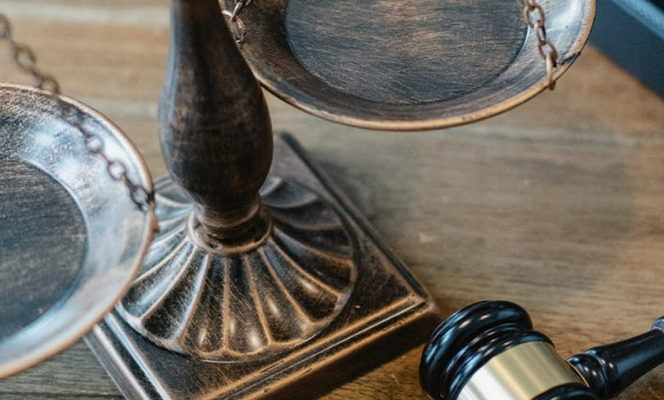Back in December, we wrote about Attorney Robert Fojo’s law license and how it seemed coincidental that the only lawyer in New Hampshire challenging COVID-related measures, like school district mask mandates, had his license suspended.
Fojo has been making waves and pushing buttons. It is not uncommon for people marked as troublemakers to find themselves the object of scrutiny from any number of government agents looking for anything to slow them down or derail them.
Since then, we’ve been following along and reviewing the public filings. It looks like the NH Attorney Discipline Office (ADO) may be using Fojo’s disruptive work in COVID cases as an excuse to cancel him.
In the Beginning
The ADO first contacted Fojo in late June after a client filed a grievance. In response, Fojo acknowledged that his record-keeping got the best of him, admitted the mistake, then provided the documents and information requested along with a request for assistance and guidance to prevent this mistake from happening again.
The records show that Fojo responded to all of the ADO’s inquiries in subsequent months, met with them twice, and prepared a spreadsheet to reconcile his trust account.
For some reason, during these meetings, the ADO repeatedly asked about his mask mandate cases and the parents he was representing in those cases.
After six months of “investigation,” on Friday, December 17, 2021, at 5:24 p.m. (the week before Christmas), the ADO petitioned the New Hampshire Supreme Court to immediately suspend Fojo’s license.
As I understand it a petition for immediate suspension is used for “emergency” situations or when an attorney poses “serious harm to the public,” but the facts on December 17 were no different than they were in late June. Facts the ADO had in September. Why wait three months to declare an emergency?
No opportunity was provided to protest the petition prior to suspension but the ADO did allow 20 days after issue to respond, request a hearing before a professional conduct committee, and then 30 days to prepare for that hearing.
Four days later, the Supreme Court ignored the ADO, violated Fojo’s due process rights, and temporarily suspended Fojo’s license without a hearing.
It should be emphasized this was a temporary suspension. It is not – as many media outlets reported (see also, lied) – a final suspension. He still had the option to proceed to a trial and prevail, at which point the suspension would be lifted.
How, What, Why
The ADO’s December 17 petition includes a number of false statements. That Fojo had misappropriated tens of thousands of dollars from two other clients. That he lied to the ADO about efforts to close out a medical lien with a state agency for the client who filed the grievance against him. Or that he failed to cooperate with the ADO.
The ADO labeled the spreadsheet it “induced” Fojo to prepare as an official “disbursement journal” for his trust account, intentionally misconstrued certain errors Fojo made in reconciling the account (he’s not a CPA), and accused him of lying about those mistakes.
An immediate hearing was requested to contest the Court’s December 21 suspension and the Supreme Court scheduled a hearing for January 4, 2022, at which more interesting things were discovered.
Fojo’s attorney explained that the case law shows attorneys who make mistakes with their trust accounting usually merit “reprimands” not suspension so, the suspension of a law license without notice or hearing does not fit the alleged wrong.
Despite that fact, the ADO argued Fojo should, at a minimum, be suspended for several years and preferably outright disbarred. (Disbarment is like the death penalty for attorneys; unlike a suspension, where an attorney can petition for reinstatement, disbarment forbids you from practicing law again.)
We also learned that three days before Christmas, the ADO sent letters to Fojo’s bank directing it to freeze not only his trust account but his operating account as well even though the Court’s order did not prohibit Fojo from using his operating account.
Nevertheless, the account was frozen (and he could not withdraw money from it or pay operating expenses for his law firm) during the Christmas holiday.
In the next update, I’ll explain what else occurred at the January 4 hearing, and then we will bring you up to speed on where things stand today.

